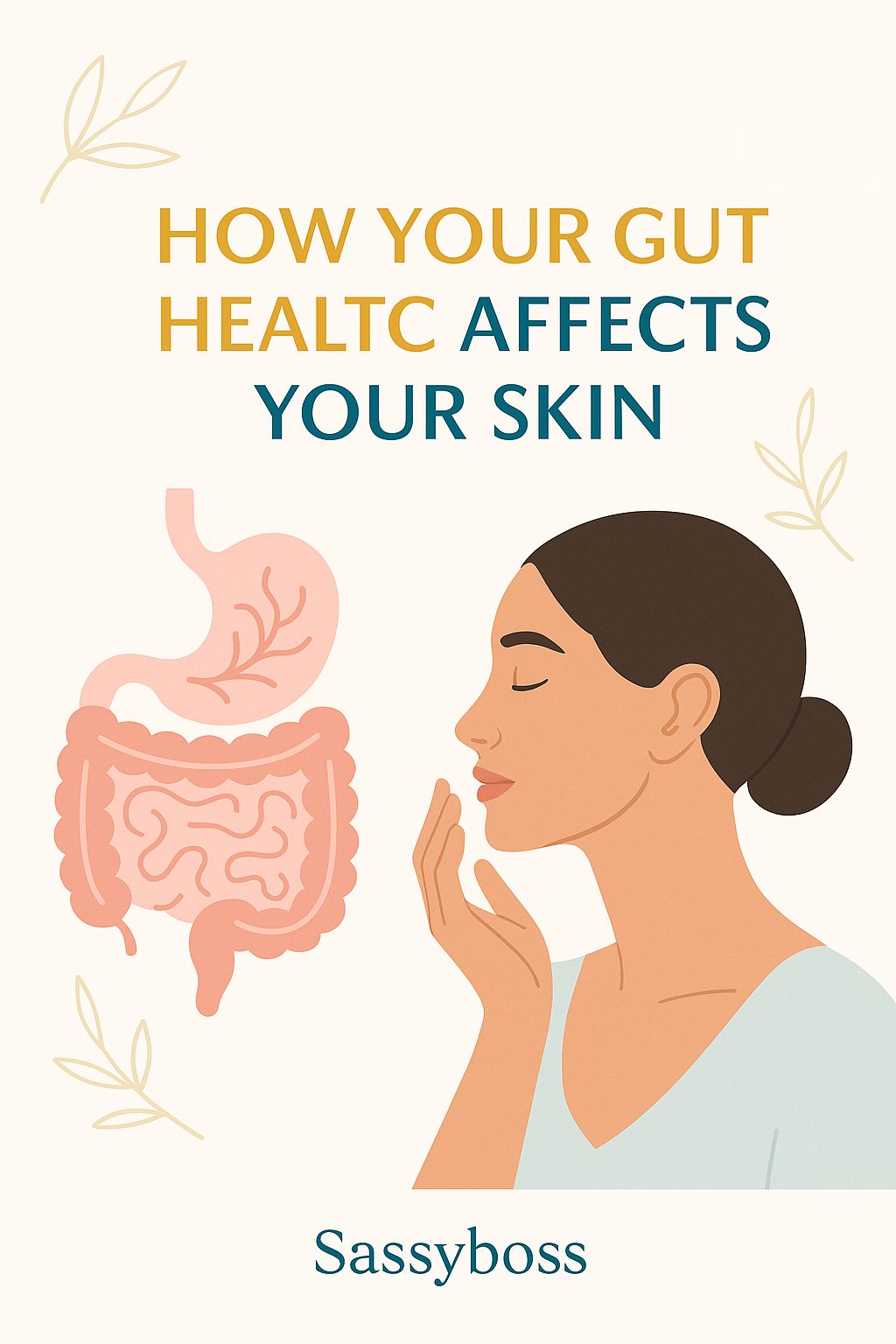How Your Gut Health Affects Your Skin
In the past few years, gut health has become a buzzword in wellness communities—and for good reason. The gut, often called the “second brain,” plays a significant role in our overall health. But did you know that your gut health could also be affecting the condition of your skin?
From acne and eczema to premature aging and rosacea, various skin issues have been increasingly linked to the state of your digestive system. In this blog post, we’ll explore the powerful connection between your gut and your skin, often referred to as the gut-skin axis, and how nurturing your gut health can lead to clearer, healthier skin.
Understanding the Gut-Skin Axis

The gut-skin axis refers to the two-way communication between the gastrointestinal tract and the skin. This connection is mediated by the immune system, hormones, and gut microbiota (the community of trillions of bacteria living in our intestines). When your gut is functioning optimally, it absorbs nutrients efficiently, eliminates toxins properly, and maintains a healthy immune response—all of which are critical for glowing skin.
However, when the gut is out of balance, often due to poor diet, stress, illness, or antibiotic use, it can lead to gut dysbiosis—a condition where harmful bacteria outnumber beneficial ones. This imbalance can trigger systemic inflammation, impair the skin barrier, and exacerbate or even cause dermatological issues.
Skin Conditions Linked to Poor Gut Health
Here are some common skin problems that may be influenced or worsened by poor gut health:

1. Acne
Chronic inflammation and hormonal imbalances driven by gut issues can increase sebum production and clog pores, leading to acne breakouts. Studies have shown that people with acne often have different gut microbiota compared to those without acne, suggesting a strong link.
2. Eczema (Atopic Dermatitis)
Eczema is a condition marked by dry, itchy, inflamed skin. Researchers have found that individuals with eczema often have reduced microbial diversity in the gut and may benefit from probiotics and dietary changes to support gut health.
3. Rosacea
Rosacea has been linked with gastrointestinal disorders such as small intestinal bacterial overgrowth (SIBO) and irritable bowel syndrome (IBS). Addressing gut imbalances can lead to significant improvements in rosacea symptoms.
4. Psoriasis
Psoriasis is an autoimmune skin condition that may be aggravated by inflammation originating in the gut. A leaky gut, where the intestinal lining becomes more permeable, can allow toxins and undigested food particles to enter the bloodstream, triggering immune responses that affect the skin.
How to Improve Gut Health for Better Skin
Improving your gut health can lead to noticeable benefits for your skin. Here are some effective strategies:

1. Eat a Gut-Friendly Diet
Focus on a diverse diet rich in fiber, fruits, vegetables, whole grains, and fermented foods like yogurt, kefir, sauerkraut, kimchi, and kombucha. These foods promote a healthy balance of gut bacteria and reduce inflammation.
Avoid processed foods, excessive sugar, and alcohol, as these can feed harmful bacteria and increase inflammation.
2. Stay Hydrated
Water helps flush toxins from your body and supports proper digestion. Staying well-hydrated is essential for both gut and skin health.
3. Take Probiotics and Prebiotics
Probiotics are beneficial bacteria that help balance the gut microbiome. Prebiotics are types of fiber that feed those good bacteria. You can get probiotics through fermented foods or supplements and prebiotics through foods like garlic, onions, bananas, and asparagus.
4. Manage Stress
Chronic stress can negatively impact the gut by altering the microbiome and increasing inflammation. Incorporate stress-reducing practices such as meditation, deep breathing, yoga, or simply spending time in nature.
5. Get Enough Sleep
Poor sleep affects the gut and skin alike. Aim for 7–9 hours of quality sleep per night to give your body a chance to repair and regenerate.
6. Avoid Unnecessary Antibiotics
While sometimes necessary, antibiotics can wipe out both harmful and beneficial bacteria in the gut. Use them only when prescribed, and always follow up with probiotics to replenish your microbiome.
The Bottom Line

Healthy skin starts from within, and your gut is at the center of it all. While skincare products and topical treatments have their place, they only address the surface of the problem. If you’re dealing with persistent skin issues, it’s worth exploring whether your digestive health could be playing a role.
By nourishing your gut through a balanced diet, healthy lifestyle habits, and stress management, you’re not just supporting your internal health—you’re also giving your skin the foundation it needs to look and feel its best.
